Beautifully minimalist note-taking app designed to mirror the way you think
What Nobody Tells You About Reflect Notes: Qualified Success (Conditional Rec)
🧠 Reflect Notes Assessment: Qualified Leader with Conditional Win
I was talking to a colleague who kept mentioning this “networked thinking” concept, and I finally caved. With over 5,000 monthly searches and growing market interest, Reflect Notes seemed worth investigating. Six months later, my feelings about this premium note-taking app remain genuinely complicated.
📋 What's Inside This Review
- 🧠 Reflect Notes Assessment: Qualified Leader with Conditional Win
- 🔍 The Authentic Discovery Process: Beyond Marketing Claims
- ⚡ Where Reflect Actually Excels (And Where It Stumbles)
- 💰 The Premium Pricing Conversation: Value Versus Cost
- 📊 My Comprehensive Assessment After Six Months of Daily Use
- 🎯 Who Should Consider Reflect Notes (Based on Real Experience)
- ⭐ My Honest Rating: 3.7 Out of 5 Stars
- 🔗 Stuff That Might Help You Too (With Rating Context)
Let me cut to the chase: Reflect delivers on its core promises while simultaneously highlighting why the note-taking space is so challenging to navigate.
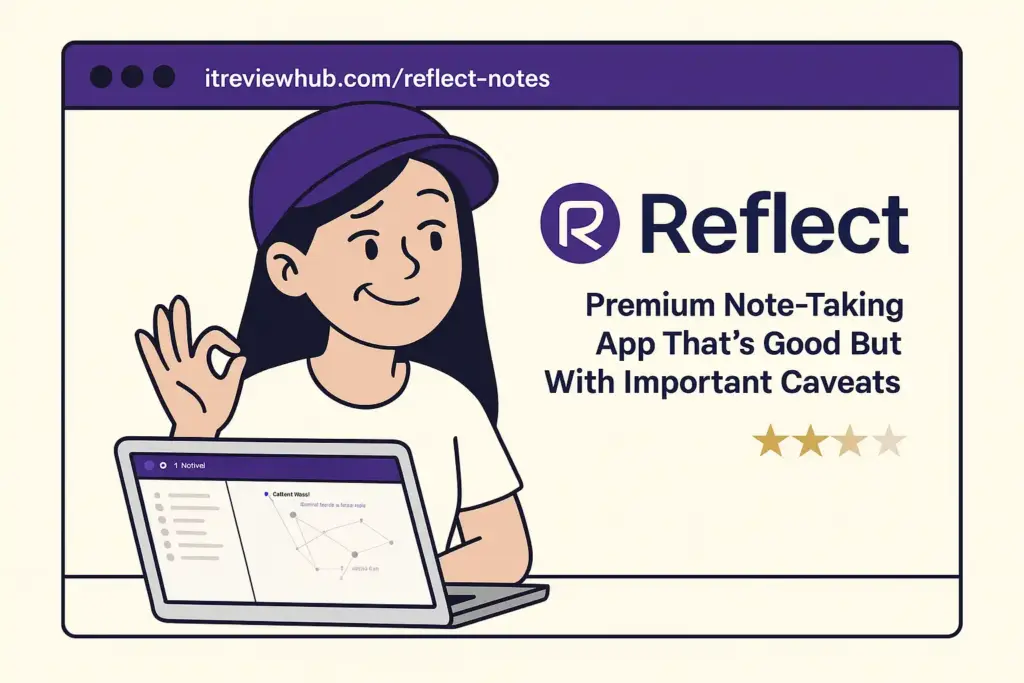
🔍 The Authentic Discovery Process: Beyond Marketing Claims
My initial weeks with Reflect felt like learning a new language. The interface appears deceptively simple—just today’s date and a clean text editor—but beneath this minimalism lies a sophisticated backlinking system that fundamentally changes how you think about information capture.
Here’s what nobody mentions in the promotional materials: the learning curve isn’t about memorizing features, it’s about rewiring your note-taking instincts. I spent the first month obsessively linking everything, creating what I now recognize as meaningless digital clutter. The real skill is developing judgment about which connections actually matter.
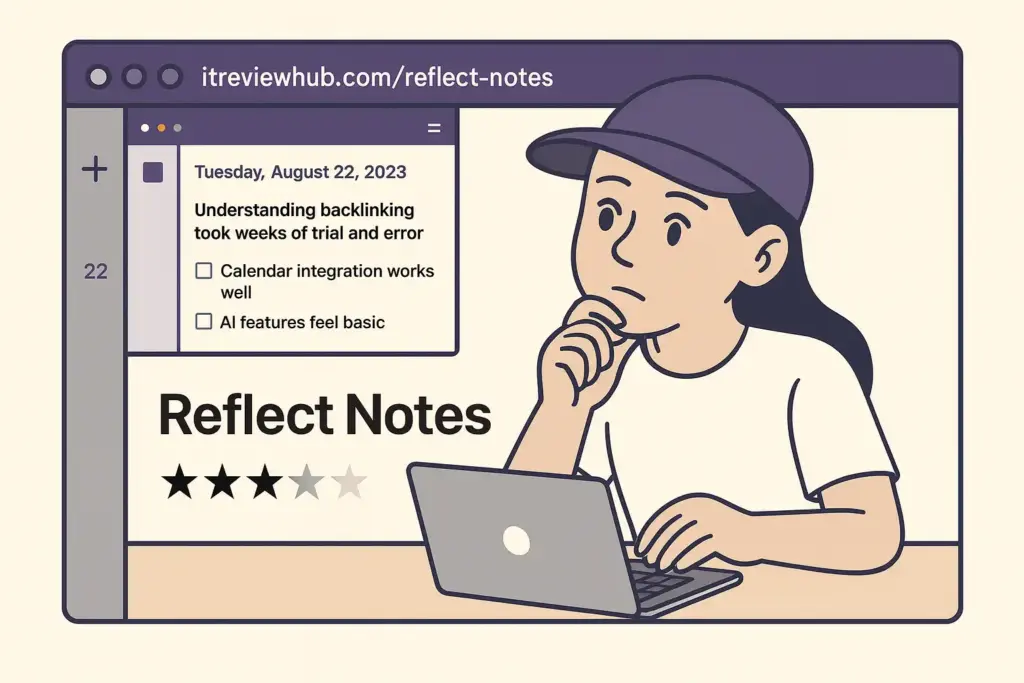
🍳 Kitchen Metaphor: Like Learning to Cook Without Recipes
Think of Reflect like transitioning from following recipes to understanding flavor principles. Initially, you want explicit instructions for every step. Gradually, you develop intuition about which ingredients naturally complement each other. With Reflect, this means learning when [[backlinking]] adds genuine value versus just creating busy work.
I genuinely surprised myself by how much this shift improved my thinking process, but it required patience I wasn’t expecting to invest in a note-taking app.
⚡ Where Reflect Actually Excels (And Where It Stumbles)
📅 Daily Notes: The Foundation That Actually Works
Reflect’s daily note approach solved a problem I didn’t realize I had. Instead of agonizing over folder hierarchies or tag systems, I dump everything into today’s note and trust the backlinking to surface connections later. This workflow feels natural in ways that traditional organization never did.
The calendar integration deserves particular praise—my meetings appear directly in context, eliminating the friction of switching between apps. For anyone who takes regular meeting notes, this seamless integration justifies serious consideration.
Market data confirms this appeal: with low competition keywords yet steady 5,000 monthly searches, people are actively seeking this exact functionality. The search trends suggest users want something more sophisticated than basic note-taking but less overwhelming than power-user tools.
🤖 AI Integration: Competent But Not Compelling
Reflect’s GPT-4 integration works exactly as advertised, which means it’s useful but rarely surprising. Voice transcription captures rambling thoughts accurately, writing suggestions occasionally improve clarity, and the chat feature can summarize long notes effectively.
Having said that, I found myself using these features less than anticipated. The AI feels like a quality bonus rather than a compelling reason to choose Reflect over alternatives that cost significantly less. When tools like Notion offer similar AI capabilities at no additional cost, Reflect’s premium pricing requires stronger justification.
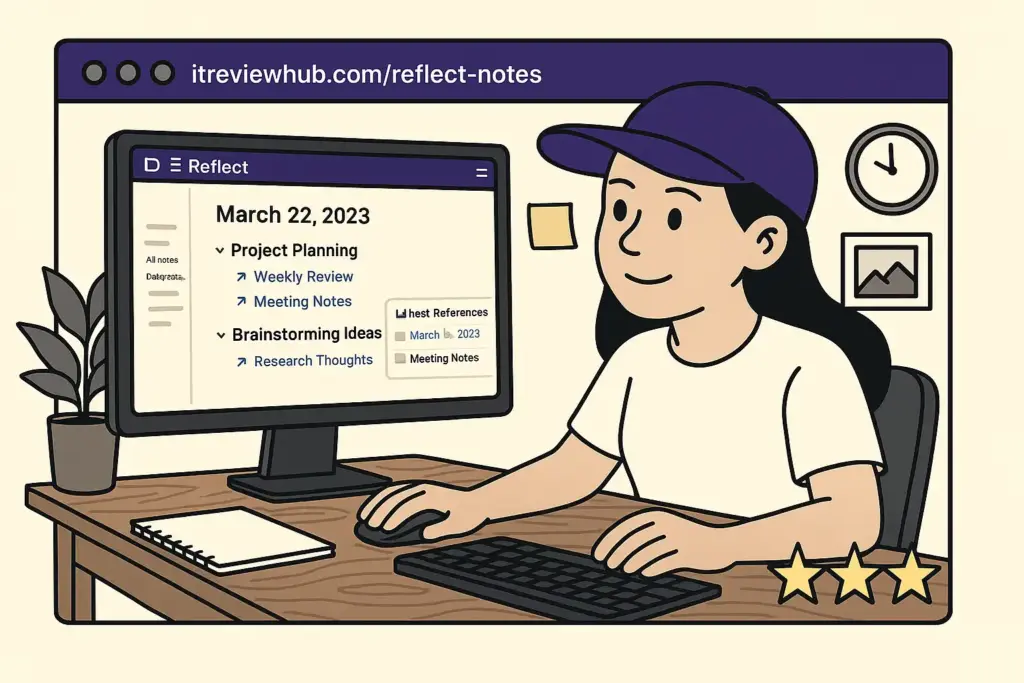
🔗 The Backlinking Reality: Powerful When You Get It Right
Here’s where my experience gets nuanced. Reflect’s backlinking system genuinely creates those “aha moment” connections between notes from months apart. Watching my knowledge graph grow and reveal unexpected patterns felt surprisingly satisfying.
But this only works if you develop disciplined linking habits. Miss this routine for a few weeks, and you’re back to isolated notes that don’t deliver the promised “second brain” experience. The app provides minimal guidance for developing these habits—you’re expected to figure it out through trial and error.
💰 The Premium Pricing Conversation: Value Versus Cost
At $120 annually, Reflect occupies an awkward market position. The quality is undeniable—everything feels intentionally designed, syncing works flawlessly across devices, and the user experience maintains consistency that larger companies often struggle to achieve.
Market context matters here: Google’s Keyword Planner data shows low competition for Reflect-related searches, suggesting this premium positioning might be intentional rather than accidental. While competitors like Notion offer more features for free, and Obsidian provides similar backlinking without subscriptions, Reflect targets users who specifically value polish over feature abundance.
I can honestly say the experience feels premium. But whether that premium feel justifies the premium pricing depends entirely on your workflow and budget constraints.
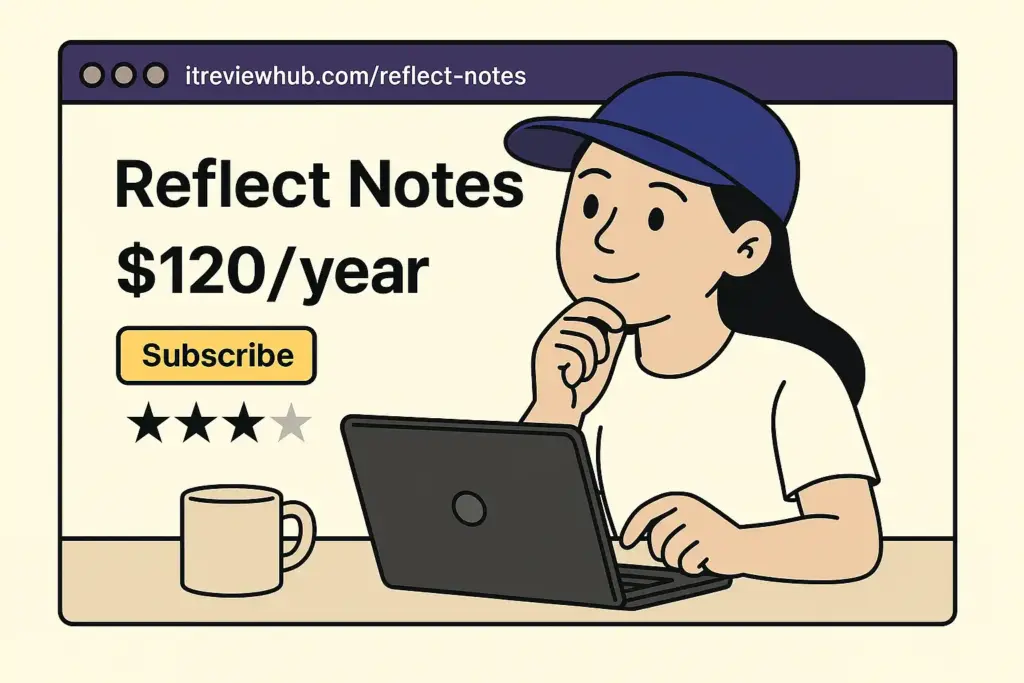
📊 My Comprehensive Assessment After Six Months of Daily Use
Having used Reflect consistently for half a year, I’ve reached conclusions that might surprise people expecting either universal praise or complete dismissal.
✅ What Genuinely Improves My Workflow
The daily notes foundation transformed my information capture habits. Rather than spending cognitive energy on organization decisions, I focus on capturing thoughts and trust the system to surface connections. This mental shift feels more significant than any individual feature.
Calendar integration eliminated friction I didn’t realize was slowing me down. Seeing meetings directly in note context, then quickly creating meeting notes with participant information pre-populated, streamlines my workday in measurable ways.
🤔 Where I Still Feel Conflicted
Search functionality occasionally frustrates me. While generally competent, I sometimes need multiple search attempts with different keywords to locate information I know exists. Established apps like Evernote handle search with more sophistication.
The AI features, though well-implemented, rarely provide insights I wouldn’t reach independently. They’re useful for routine tasks but don’t fundamentally change how I interact with my notes or generate new thinking patterns.
All things considered, Reflect executes its vision extremely well while acknowledging the trade-offs inherent in that vision.
🎯 Who Should Consider Reflect Notes (Based on Real Experience)
Reflect makes sense if you’re:
- A knowledge worker who naturally thinks in connections and relationships between concepts
- Someone who values user experience refinement over feature abundance
- Willing to invest both money ($120/year) and time (several weeks) developing effective backlinking habits
- Frustrated with traditional folder-based organization but wanting something more polished than Obsidian
Consider alternatives if you’re:
- Satisfied with straightforward solutions like Apple Notes or Google Keep
- Drawn to extensive customization possibilities (Obsidian) or database functionality (Notion)
- Working within tight budget constraints where capable free options make more practical sense
- Someone who prefers hierarchical organization over networked thinking approaches
⭐ My Honest Rating: 3.7 Out of 5 Stars
What I genuinely appreciate: Clean interface design, reliable cross-device syncing, thoughtful calendar integration, and a backlinking system that actually delivers on networking promises once you understand its nuances.
What holds it back: Premium pricing that’s challenging to justify for casual users, AI features that feel more like expected checkboxes than genuine value propositions, and search functionality that occasionally requires more effort than it should.
The bottom line: Reflect Notes represents good software that successfully executes its specific vision. However, it occupies an awkward middle ground in the market—more expensive than capable free alternatives while not being dramatically more powerful for most use cases.
Don’t get me wrong: if budget isn’t a primary concern and you value user experience over feature maximization, Reflect might genuinely enhance your note-taking workflow. The 14-day trial provides adequate time to determine whether networked thinking resonates with your thinking patterns.
Just remember that the real benefits only emerge after consistent use over several weeks. Don’t judge Reflect based on your initial few days of exploration—the learning curve is part of the value proposition, not a bug to be fixed.
🔗 Stuff That Might Help You Too (With Rating Context)
- 📚 Official Reflect Academy (actually useful for learning effective habits – essential for getting value from this tool)
- 👥 Community forums (where I found most solutions to the learning curve challenges)
- 🎓 Learning resources (saved me hours of confusion with backlinking best practices)
- 🔄 Official comparison guide (helps understand where Reflect fits in the competitive landscape)
- 📊 Latest updates (because the app evolves quickly and new features impact value calculation)





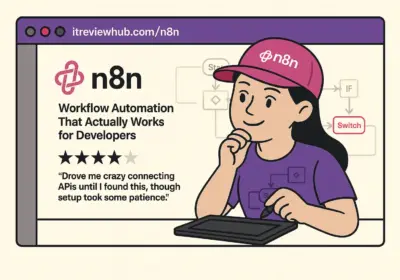


No Comment! Be the first one.